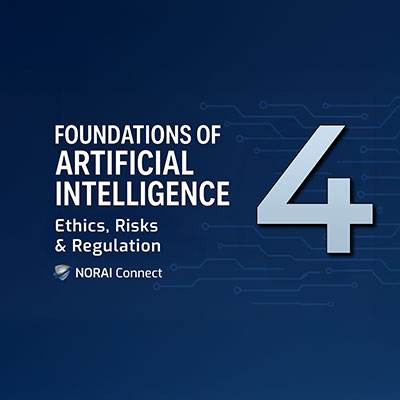As an advocate for Europe’s technological sovereignty, I am increasingly concerned about our continent’s reliance on artificial intelligence (AI) technologies predominantly developed and controlled by US-based companies.
This dependency raises significant questions about data privacy, regulatory alignment and the very essence of our digital autonomy.
The AI landscape is overwhelmingly dominated by American enterprises. US Tech companies such as OpenAI, Google and Microsoft have pioneered advancements, offering tools and platforms integral to various sectors across Europe. While their contributions have undeniably propelled innovation, our heavy reliance on these US-based technologies presents a multifaceted dilemma.

Data Privacy Concerns
Central to this issue is data privacy. European citizens’ data, when processed by AI systems operated by US companies, often traverses international boundaries, subjecting it to foreign jurisdictions. This cross-border data flow raises concerns about compliance with the General Data Protection Regulation (GDPR), our stringent framework designed to protect personal data within the EU.
The potential for data to be accessed or mishandled under different legal standards poses a significant risk to the privacy rights of European individuals. For example, after European watchdogs fined Clearview for scraping personal data and creating a biometric database, the company’s chief legal officer, Jack Mulcaire, said that the company “does not have a place of business in the Netherlands or the EU, it does not have any customers in the Netherlands or the EU, and does not undertake any activities that would otherwise mean it is subject to the GDPR.” The Verge
Regulatory Discrepancies
The divergence in regulatory philosophies between Europe and the United States further complicates this dependency. The EU has adopted a precautionary approach, emphasising robust regulations to safeguard ethical standards and human rights in AI deployment. In contrast, the US approach often prioritises rapid innovation over regulation. This disparity can lead to conflicts, especially when AI tools developed under US regulations are deployed within European contexts, potentially bypassing our established ethical and legal standards.

Beyond privacy and regulation, our dependence on external AI technologies challenges Europe’s digital sovereignty. Relying on foreign AI solutions means ceding a degree of control over critical infrastructure and services. This reliance can make us vulnerable to external pressures and limit our ability to independently shape the digital future in line with European values and interests.
The Imperative for a European AI Powerhouse
To address these challenges, it is imperative that Europe invests in developing its own AI capabilities. Establishing a robust, homegrown AI ecosystem would not only mitigate the risks associated with external dependencies but also ensure that AI development aligns with our ethical standards, legal frameworks and societal needs.
Building a European AI powerhouse requires a multifaceted strategy:
Investment in Research and Development: Allocating substantial resources to AI research will foster innovation and attract top talent. Public-private partnerships can play a pivotal role in accelerating development and deployment.
Harmonisation of Regulations: While maintaining high ethical standards, streamlining regulations across member states can create a conducive environment for AI enterprises to thrive without unnecessary bureaucratic hurdles. Having different regulations and legislation in each European country is not sustainable.
Infrastructure Development: Establishing state-of-the-art AI infrastructure, including computing resources and data platforms, will provide the necessary foundation for AI innovation.
Education and Skill Development: Investing in education to equip the workforce with AI-related skills is crucial. This includes not only technical training but also fostering an understanding of the ethical implications of AI.
Fostering Startups and SMEs: Supporting small and medium-sized companies in the AI sector can stimulate competition and innovation, leading to a more dynamic and resilient AI ecosystem.
Recent Developments and Initiatives
Recognising these challenges, European leaders have initiated significant investments to bolster the continent’s AI capabilities. French President Emmanuel Macron announced an extensive 109 billion euro investment in AI, aiming to enhance Europe’s position in a global industry led by the US and China. This plan includes infrastructure development and computing clusters, leveraging France’s low-carbon nuclear energy for AI computing power. CNBC
Additionally, the European Union has committed 200 billion € to support AI development, with 50 billion euros allocated for new investments and 150 billion euros from private investors. This “InvestAI initiative” aims to build gigafactories necessary for training AI models within the EU. These efforts underscore Europe’s ambition to reduce reliance on American and Chinese innovations and establish a robust, self-sufficient AI ecosystem. The Verge
Final Thoughts
Europe stands at a crossroads in its AI journey. Continuing to rely heavily on US-based technologies may offer short-term conveniences but poses long-term risks to our privacy, regulatory integrity and sovereignty. By committing to the development of a robust European AI ecosystem, we can secure our digital future, uphold our values and assert our place in the global technological landscape.
I invite policymakers, industry leaders, and citizens to reflect on this pivotal issue. How do you envision Europe’s AI ecosystem evolving in the next five years? What steps should we take collectively to foster an independent and thriving AI landscape?
North Atlantic
Victor A. Lausas




